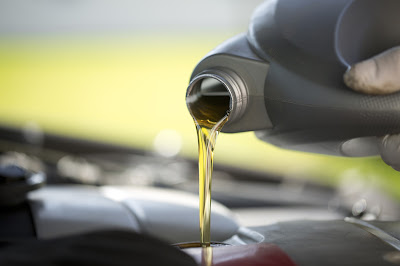Introduction In the world of internal combustion engines, turbochargers have become a popular method of increasing power and efficiency. This gas compressor, often referred to simply as a turbo, is a form of forced induction that forces air into the engine, resulting in more power for a given displacement. In this blog, we will explore the inner workings of turbochargers and their impact on engine performance. The Components of a Turbocharger At its most basic level, a turbocharger consists of three major components: the turbine, the compressor, and the bearing system that supports the turbine shaft connecting the turbine and compressor wheels. The turbine is located on the hot side of the turbocharger and is bolted onto the engine's exhaust manifold. As the engine runs, the exhaust gases pass through the turbine, spinning a fan called the turbine wheel. This spinning motion converts heat and pressure into rotational force, which in turn spins the compressor whee...
More often than not, an engine comprises of various moving parts,
each of which rubs against the opposite to make both, friction and warmth.
In
order for the parts to stay working seamlessly, it's essential that this
friction is reduced, and any kind of overheating is avoided. This task is best
done by oil, which keeps the engines well-lubricated and absorbs any excessive
heat.
Given that car oils are available in different types, as a car owner, it
is in your best interest that you have a fair knowledge about them so that car
maintenance becomes as effortless an exercise as possible for you.
Premium Oil
This is the
conventional oil that is available in different levels of viscosity. This type
of oil is largely used in light-duty vehicles, and needs to be changed/replaced
once in every 4 months, or at least twice a year.
It is highly recommended that
the oil is changed as soon as the oil-change indicator in the car lights
up.
Synthetic Oil
This type of oil is
specially formulated for classy engines, like those found in Mercedes-Benz.
They promise a high degree of performance in aspects such as protection against
deposits and viscosity index.
They are considerably expensive than the
conventional oils but are completely worth the money spent on them as they
perform well across a wide range of temperatures.
Synthetic Blend Oil
As the name
suggests, synthetic blend oil consists of a dash of synthetic materials mixed
with the conventional oil. This type of oil is formulated with the aim to offer
protection to vehicles enduring heavy loads and/or working in high
temperatures, especially SUVs.
Given that the synthetic blend oil doesn't
evaporate as easily, they reduce the loss of oil and increase fuel efficiency.
Yet another benefit of this is that it costs much less than fully synthetic.
Now that you have a clear picture regarding the various types of car oils
available, you must also understand that changing your car oil will require an
oil-filter. Like everything else, even the oil-filter you choose must be based
on the recommendation of your car maker.
That being said, you must ensure that
the filter you pick for your car isn't oversized, or else make sure that you
fill sufficient oil for it to function flawlessly.
For more information updates about Automobile and technology
kindly subscribe and follow the blog.........



Comments
Post a Comment
If you have any doubts and queries please let me know